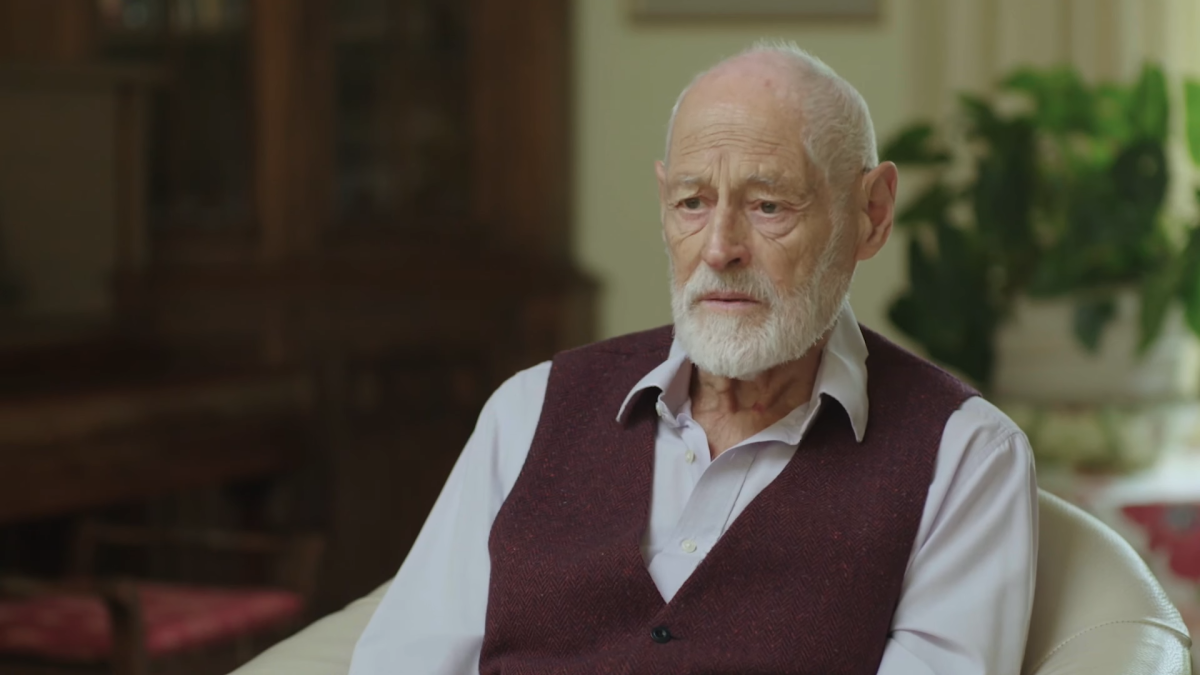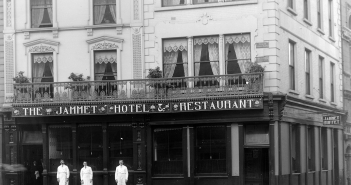It’s hard for those of us who work in the field of psychedelic-assisted therapy to put into words how much of a visionary Dr. Ivor Browne was. He was a pioneer of LSD psychedelic-assisted therapy in San Francisco and London in the 1950s. He also pioneered the therapeutic use of LSD, ketamine and holotropic breathwork in the 1980s in Dublin, when he was the Chief Psychiatrist at the Eastern Health Board, and Professor of Psychiatry at University College Dublin.
He worked with LSD and ketamine group therapy in St Brendan’s Psychiatric Hospital in Dublin in the 1970s, 80s and 90s. Dr. Ivor Browne was a maverick and, I would say, a truly great man, in many ways a man before his time.
I had the privilege of getting to know him personally when he was running a regular meditation group every Tuesday in the Lantern Centre Dublin City near where I lived. Even though he was in his late eighties or early nineties at the time, his wisdom, compassion and wicked sense of humour radiated when in his presence. Despite showing up every week, I recall that he could never remember my name, due to his great age, failing hearing, and the staggering amount of people he had met over his lifetime; yet he greeted me and all the other participants each week with a beaming smile, like we were long lost friends.
Browne’s work on trauma
In his book Ivor Browne, the Psychiatrist: Music and Madness, based on work he had originally published in 1985, he speaks of the concept of trauma stored in the body as ‘the frozen present,’ which involves unprocessed emotions. To help process the unprocessed he referred to the use of altered states of consciousness, cathartic states, music and group therapy.
This concept received very little attention from the psychiatric profession at the time, and a paper he published in the Irish Journal of Psychiatry, entitled ‘Psychological Trauma, or Unexperienced Experience’ in 1985, received zero citations at the time. This work, nonetheless, paved the way for the subsequent work of Dr. Gabor Mate, Dr. Peter Levine and Dr. Bessel Van der Kolk on trauma, somatic trauma therapy and psychedelic assisted therapy. In the 1980s – in recognition of the importance of his pioneering work – Dr. Stan Grof came to Dublin to collaborate with Dr. Ivor Browne, as did R.D. Laing.
Thus, decades before later-day pioneers on somatic trauma therapy like Dr. Gabor Mate, Dr. Peter Levine and Dr. Bessel Van Der Kolk, Browne was speaking of trauma as the ‘frozen present’, using altered states of consciousness to help people process trauma frozen in their bodies, and using group psychotherapy, breath-work, bodywork and music as a means to do this.
In a 2017 article published in Network Ireland magazine, Browne explains his attitude to trauma :
Once that shut down (through a traumatic experience) happens, then that experience is frozen. So it is not a case of a threatening memory being repressed, it is that it has never gotten in properly. Once it is frozen it is outside of time, so twenty years later this can activate – some everyday event can trigger it – and you then experience it as if it is happening now. You don’t think about it and remember it – you feel it and experience it. And, of course, at that point you think you are going nuts because you look around and nothing traumatic is happening, yet you experience this traumatic feeling. That is why I called it “the frozen present”, because when it comes, it comes through as the present, not as the past. Eventually when it works its way through and you experience it a few times then it moves into the past.
He continued:
The best example is grief. If you have lost someone you have to do a lot of work over time in order to integrate that to allow it to become a memory. Then it becomes less threatening. When my wife died five years ago, the first year was absolute hell, and I couldn’t imagine feeling any joy. The second year was bad, but not quite as bad as the first. Now after five years I am quite contented. I have a different life. By processing the trauma, it has shifted into memory, but this approach is not possible in the current psychiatric model.
Billy Ralph argues that moves by the HSE to measure health metrics in G.P. practice serves the interest of Pharma, and could foreshadow a dystopian future.https://t.co/vMddr37zH7@indepdubnrth
— CassandraVoices (@VoicesCassandra) November 6, 2023
Vocal critic
Browne was a vocal critic of the reductionist, purely bio-medical model of psychiatry. An outspoken critic of the mental health discourse, he said: ‘we are living in a society that is driving people mad’, emphasising that
Psychiatry is a reductionist system that explains everything by the parts……The tragedy of psychiatry is that this is the only way you can think. Because in the psychiatric model you cannot ask how the behaviour or upbringing of a person is affecting their biochemistry – you can only ask how is the biochemistry effecting the person. Psychiatrists don’t take a history, so they don’t understand the problem in the context of the individual’s life.
What is even more extraordinary is that he did this at a time when Irish society was incredibly conservative and the Catholic Church still held tremendous power. Professor Ivor Browne was censured by the Medical Council over his role in the Father Michael Cleary affair in 1996 after he had spoke out in support of one of his patients, Phyllis Hamilton, who revealed her affair with Fr. Cleary.
Bob Quinn's recent film 'Bog Grafitti' brilliantly conveys the looming threat of climate change. Frank Armstrong introduces a film freely available for the first time.https://t.co/UMmbjZO54m@broadsheet_ie @BowesChay @think_or_swim @whittledaway @ian_lumley @VillageMagIRE
— CassandraVoices (@VoicesCassandra) March 16, 2022
The relationship with the heart
He also proposed the heart, rather than the head, as being of central importance in mental health, and wellbeing, and that love was essential in the processing of trauma:
Key to processing trauma is cultivating a relationship that allows it to be processed, and that ultimately involves love, and the deepest traumas we can experience involve a separation from love.. the truth of all this is that the heart is the centre, and if our heart is closed we cannot experience love.. if your heart opens, then you can connect.
A deeply spiritual man, who became a devotee of an Indian spiritual guru, Browne believed, ‘These are the kind of things that we can talk about through poetry, or through the therapeutic model, but we can’t deal with these concepts through the psychiatric model. At the deepest level, a lot of our problems are spiritual.’
In Ireland, we sometimes do not celebrate our own. Today we celebrate Dr. Ivor Browne as a truly great man. He was offered a professorship at Harvard University, and I have no doubt if he had taken it he would be much more well known outside of Ireland.
Instead, he choose a life of service, helping his patients, and reforming the psychiatric services in Ireland, and Greece. Browne also played an important role in the closure of the infamous Leros island psychiatric hospital in Greece, infamous as one of the most brutal psychiatric hospitals in Europe.
Here is a link to a paper he co-wrote in 1960 with Dr. Joshua Bierer, the pioneer of social psychiatry in the UK, on the therapeutic use of LSD and group psychotherapy.
Browne also recognised the healing power of psilocybin, and the ancestral Irish use of magic mushrooms, mentioning in a podcast in 2017 that: ‘Magic mushrooms were probably available to the druids, back at that time, so several thousand years later, similar, to the sort of relationship you have (with ayahuasca) in Peru or Brazil.’
Freud reputedly said that the Irish were the only people impervious to psychoanalysis, and that may be true, certainly in previous generations due to the ancestral trauma that was so prevalent. But Ivor Browne is the closest thing we have to an Irish Sigmund Freud or Carl Jung.
Thank you Dr. Ivor Browne, from all the people you helped and for your visionary qualities.




